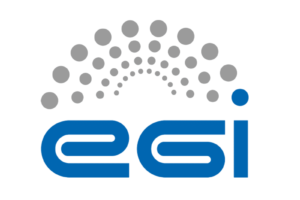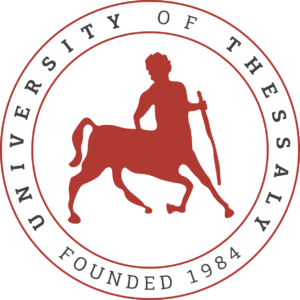
University of Amsterdam (UvA) - Coordinator
UvA is a leading university: according to recent rankings, UvA belongs to the top 100 universities worldwide and to the top 10 in the EU. UvA has a track record of leadership roles in successful EU projects (e.g., CYCLONE, GEYSERS, EDISON, FAIRsFAIR). UvA participates in the SLICES-PP project and coordinates the SLICES-NL initiative. UvA performs cutting-edge research in digital ICT infrastructures, security and privacy of complex cyber systems. UvA coordinates a Long-Term Program ROBUST ‘Trustworthy AI-based Systems for Sustainable Growth’ in NL. UvA runs the leading MSc programs in System and Network Engineering and Software Engineering in the Netherlands, where elements of sustainability are included in the curriculum. Many UvA works and publications are recognised worldwide.

Czech Education and Scientific NETwork (CESNET)
CESNET is an association of universities and Institutes of the Czech Academy of Sciences, providing integrated e-infrastructure services, including computing and storage. It is the coordinator of the national e-infrastructure, e-INFRA CZ, that serves more than 300 research institutions across the country. CESNET also conducts research and development and the results are applied in the e-infrastructure and its services. Their research areas include optical network transport systems, quantum key distribution, network identity and middleware, network monitoring, detection and mitigation of network attacks, and user privacy and security.

Consiglio Nazionale delle Ricerche (CNR)
CNR is the largest public research centre in Italy. The groups participating in the project coordinate the SoBigData RI, and lead the Italian national consortium participating in the SLICES RI. They feature vast expertise on social-oriented data mining, AI, e-infrastructure development and management, edge computing, IoT, beyond 5G networking.

Centre national de la recherche scientifique (CNRS)
CNRS, as the largest research organization for fundamental science in Europe that covers all scientific fields, has a dedicated computing service and e-infrastructure system. CNRS operates two major national computing centres and are open to all research areas. CNRS is also the core actor for distributed computing facilities in France, providing large computing facilities for WLCG, EGI and Elixir. From its involvement in all of these computing and data management centres, CNRS has acquired expertise in the management of the environmental impacts of these infrastructures, which has resulted in the creation of the EcoInfo group of services.

Consejo Superior de Investigaciones Científicas (CSIC)
CSIC is Spain’s largest public research institution and ranks third among Europe’s largest research organisations. It carries out research in all fields of knowledge, distributed in three global areas: Life, Society and Materia. CSIC is a founding mandated member of the EOSC Association. In the GreenDIGIT proposal the participation is structured through the Advanced Computing and e-Science group of the Instituto de Física de Cantabria (IFCA). IFCA develops research lines in Advanced Computing, High Energy Physics, Environmental Sciences, Astrophysics, Statistical Physics, and Meteorology, and participates in large international consortia like CMS@LHC (CERN), PLANCK (ESA), XMM (ESA), IPCC Atlas of ARRAKIS. In the context of this proposal, IFCA was the project coordinator for the H2020 DEEP-Hybrid-DataCloud project and the Horizon Europe AI4EOSC projects, building an AI platform over EOSC resources. IFCA is also the coordinator of two official MSc degrees on data science and on physics. IFCA computing services are certified with an ISO9001 and ISO27001.

EBRAINS
EBRAINS is an international non-profit association; its members are leading European universities and research institutions. The EBRAINS RI is an integrated, state-of-the-art set of services for brain research, including the provision of high-performance computing for brain research (FENIX and PRACE networks). The open Metadata Initiative for Neuroscience Data Structures (openMINDS) is developed within EBRAINS. EBRAINS has a wide range of current and future facilities via open science to enable to others to engage during and beyond the lifetime of the project. Resources that would have been spread across individual workstations are provided in the centralised manner. EBRAINS will contribute to multiple project activities such as impact aware data management infrastructure and services implementation, training, RI lifecycle analysis, and RI sustainability requirements specification. EBRAINS will also act as an early adopter of services developed in GreenDIGIT.

EGI
The EGI Foundation is the coordinating body of the EGI Federation. It was established in 2010 with a headquarters in Amsterdam, Netherlands. The EGI Foundation offers a federation and management platform that enables service providers to harmonise interfaces and connect to a common hub. The foundation team engages with research communities to understand the demand, to simplify the access and to drive innovation together. EGI currently serves over 20 ESFRIs and over 150 international science communities with digital services, training and consultancy. EGI contributes to EOSC Core and Exchange, to Data Spaces, to GAIA-X.

Sorbonne University (SU)
Sorbonne University is a research-intensive university, a member of the LERU, developing excellent research but also strongly involved in the service to society, in particular regarding environmental transition. SU has a strong and large computer science and electrical engineering department (LIP6) that has been involved in digital infrastructure test platforms since 2005, also coordinating more than 10 EU projects in this area. SU is coordinating the SLICES community and initiative since 2017 and will provide its expertise, engaging SLICES in this project.

Institute for Computer Science and Control (SZTAKI)
SZTAKI is one of the largest IT research institutes in the Central European region with 250+ employees. Among its other achievements, the institute plays a key role in Cyber-physical Production Systems related research, development, and training as an EU Centre of Excellence in Information Technology and Automation, as the leader of the Ipar 4.0 (Industry 4.0) National Technology Platform, as the founding leader of the AI National Laboratory, as the leader of the Hungarian node of Research Data Alliance (HRDA) and GAIA-X, as the leader of the Hungarian ELKH Cloud. SZTAKI is certified according to the ISO 9001:2015 standard. SZTAKI participates in SLICES-SC, SLICES-PP projects, and in EGI-ACE.

Technical University of Munich (TUM)
The Technical University of Munich (TUM) is one of Europe’s leading universities. It focuses on the engineering sciences, natural sciences, life sciences, medicine, and social sciences. The focal areas of the Chair of Network Architectures and Services is part of several national and international projects in the domain of future 6G mobile networks, improvements for federated testbeds in SLICES RI and SLICES SC projects.

University of Thessaly (UTH)
UTH has long experience with EU program management and coordination. The team has technical expertise in 5G networking, cloud and edge management systems, and NFV management using Artificial Intelligence methods with Neural Network or Decision Tree algorithms (including scheduling/balancing of Virtual Network Functions). During the project, UTH will offer the NITOS testbed (the SLICES-GR node) as an RI for applying the optimizations of the project

Poznan Supercomputing and Networking Center (PSNC)
PSNC is the research center, focused on the delivery of research infrastructure and services to scientific communities in Poland. PSNC is involved in research projects related to networking (5G/6G, optical, quantum communication) and computing (quantum computing, clouds and HPC). In GreenDIGIT PSNC will lead the task responsible for the analysis of SotA and technology evaluation. PSNC will contribute to energy efficiency optimisation of the networking part of the RIs.

National Inter-University Consortium for Telecommunications (CNIT)
CNIT is the main public Italian national consortium in the field of telcos. It brings together 41 Italian public universities to perform research, innovation and education/training activities in the field of Information and Communication Technology. The groups involved in the project feature vast expertise on beyond 5G network infrastructure, development and operation of networking experimental facilities, and management of experimentally-driven research platforms.

Greenspector
Greenspector is a company with a mission dedicated to the eco-responsible digital transformation of organisations. For more than 10 years, Greenspector has been developing expertise and solutions for measuring and analysing energy-resource consumption and projecting the environmental impacts of the web, mobile, and IoT application assets, and even server side. Through our SaaS software tools and expert services, we put our technological innovations at the service of professionals. They allow the control of the environmental impacts of mobile applications and websites, the improvement of application performance and the user experience.

Mandat International (MI)
Mandat International is an independent foundation and research centre supporting and promoting international cooperation. The MI team has a strong expertise in data regulations, ICT, IoT, standardisation and sustainable development. As based in Geneva, MI has direct access with the UN and other international organisations, including SDOs.
